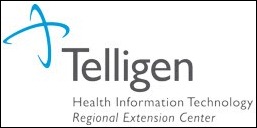The article about Pediatric Associates in CA has a nugget with a potentially outsized impact: the implication that VFC vaccines…
News 2/19/13
The CalHIPSO Regional Extension Center launches service offerings that include Meaningful Use tracking, EHR readiness, and eligibility registration attestation.
DeKalb Health (IN) selects e-MDs Solution Series for its 19 providers.
RCM provider MediGain acquires ASC Billing Specialists, a PM and A/R management company specializing in ASCs.
Telligen Iowa HIT REC achieves 100 percent of its goal of 1,200 providers live on certified EHRs with active quality reporting and e-prescribing.
Researchers from Indiana University devise an artificial intelligence (AI) framework that may outperform physicians in making cost-effective clinical decisions that result in good outcomes. The researchers used EHR data to compare real outcomes and costs associated with 500 cases with the hypothetical models generated by computer algorithms. The results indicate that AI could improve patient outcomes by 30 to 35 percent.
gMed releases gGastro+, a gastroenterology-specific EHR with integrated endoscopy reporting, a patient portal, and practice maintenance.
Vitera says its v8.10 release includes enhancements to Intergy EHR and PM, Practice Analytics, and Practice Portal.
CMS hosts a 90-minute call February 19 at 1:30 EST to discuss avoiding the 2014 eRX and 2015 PQRS payment penalties.
Michigan lawmakers introduce legislation that calls for the creation of a single universal prior authorization form for prescription drugs.
Covisint reports that its customers have earned more than $30 million in incentives using its DocSite PQRS solution.
Patient-centered medical homes deliver slightly better care in terms of patient satisfaction and preventive care, but may not result in cost savings according to a study published in Annals of Internal Medicine.
MedCity News categorizes the three types of organizations buying EHRs in 2013 as 1) small provider organizations purchasing their first EHR; 2) practices switching EHRs as part of a merger or acquisition by another organization; and 3) providers that are disgruntled with the current EHR and looking for a replacement.






Whoa…fortunately, the AI piece went on to say that they only studied depression and,
“But the researchers don’t think the kinds of frameworks they’re developing will ever be able to actually replace doctors. ‘We believe that the most effective long-term path could be combining artificial intelligence with human clinicians,’ Bennett said. ‘Let humans do what they do well, and let machines do what they do well. In the end, we may maximize the potential of both.’”
Whew! I’m much happier thinking that I may become a Borg than thinking I might have to start slinging burgers.